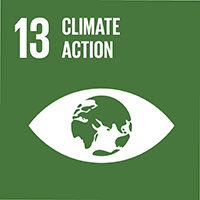Climate-sensitive Innovations for Land Management (CLM)
Agriculture is the main economic stay for more than three quarters of the population. Soil erosion, frequent drought and heavy flooding coupled with pressure of rapid population growth (~2.7%) and a shortage of employment opportunities jeopardize the livelihoods of many people living in Ethiopia’s highlands. Almost 50% of the agricultural land is affected by soil erosion and at least 30,000 ha of land – representing the livelihoods of 150,000 people – are lost annually. Water bodies including the rift valley lakes and hydro-dams are at an increasingly high risk of siltation. Fertile crop and pasture lands is shrivelled due to formation of gullies which ultimately channel the sediments into water bodies.
As a result, many ecosystems including the hydro-power dam catchments and the rift valley lakes such as lake Chamo and Abaya, are deteriorating at an alarming rate. Paired with ethnical conflicts and the continuous risk of political unrest, these conditions represent considerable challenge to the country’s rural development efforts. Especially women and young people only have limited access to education, markets and financing options and therefore suffer more than other groups of the society from poverty. Altogether, the highland livelihoods are entrapped in a cycle of natural resource degradation and food insecurity.
The Ethiopian Strategic Investment Framework (ESIF) defines the economic, social and environmental priorities for Sustainable Land Management (SLM). The aim is to improve the livelihoods of farmers, pastoralists and forest users by combining large-scale land use with measures for remediating degraded land and increasing productivity through enhanced land management and marketing opportunities. ESIF was revised in 2019 with the updated version focusing to a significantly greater extend on the introduction of innovations and on scaling up SLM as a central task.
For the implementation of SLM measures in the six highland regions of the country, the Government of Ethiopia (GoE) initially established the Sustainable Land Management Programme (SLMP). Over time, the latter has developed into a national flagship program, benefitting from broad political support. SLMP is also supported by several high-level donors, including the World Bank (WB) and the German Development Cooperation (GIZ and KfW).
As an overall objective, the land management initiative of the Ethiopian government aims at reaching two million highland households in more than 7,000 micro watersheds. The new project “Climate-Sensitive Innovations for Land Management” (CLM) is a technical cooperation (TC) module of the program “Sustainable Land Management and Food Security in Ethiopia” within the sectoral focal area of “Sustainable Use of Natural Resources, Agriculture and Food Security” of the German-Ethiopian Development Cooperation.
To a certain extent, the CLM project (itself scheduled to start in 07/2021 with a duration of initially three years) is a successor to the “Sustainable Use of Rehabilitated Land for Economic Development” (SURED) program which aims at establishing economically viable options for the use of rehabilitated land. SURED works closely with SLMP and will be completed in 12/2021. Relevant parts of SURED will then be transferred to the CLM module.
The expected outcome of the TC module “Climate-Sensitive Innovations for Land Management” (CLM) has been defined as “the efficiency of agricultural advisory services delivered by federal, regional and local institutions for planning and implementing sustainable land management measures are enhanced”.
The following indicators will be used to measure the achievement of the outcome:
1. Three strategic approaches and policies of SLMP for climate-sensitive land rehabilitation and management with newly established Guidelines are validated.
2. An assessment by the members of registered Watershed User Associations (WsUAs) of the quality of the services delivered by the Extension Services for planning and implementing SLM measures increases by 2 points on a 10-point scale.
3. The agricultural Extension Services conceptionally and technically supported 70 Watershed User Associations (WsUAs) from initiation to official registration in which at least 30 % women and 25 % young people serve in the executive committees.
4. Recommendations for the improvement of SLM measures are adopted by a local coordination committee composed of representatives of federal and regional institutions of the Ministry of Agriculture (MoA), the Commission for Environment, Forest and Climate Change (EFCCC) and other relevant institutions.
5. The number of adopted annual and multi-year watershed management plans submitted by Watershed User Associations (WsUAs) to SLM SC has increased from 50% to 85%.







